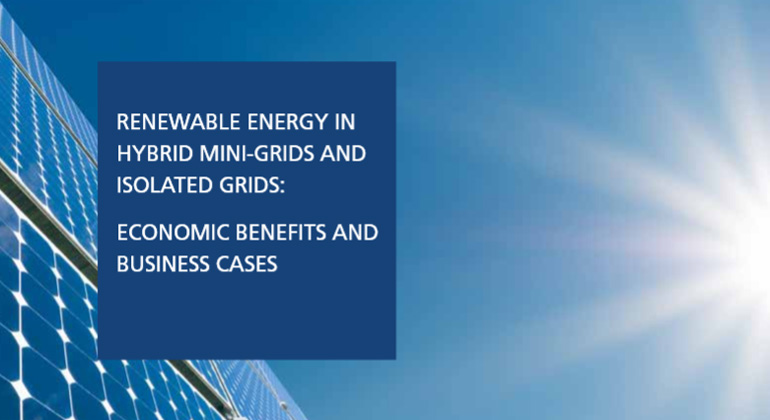Renewable Energy in Hybrid Mini-Grids and Isolated Grids: Economic Benefits and Business Cases
Renewable power has significant potential to reduce the cost of electricity in rural and island settings across the developing world.
In areas distant from main power grids, regional isolated grids – often referred to as mini-grids – are often the main source of electricity to industry and households. Power generation usually relies on diesel fuel, often imported over long distances. Yet generating costs can be reduced by hybridising these mini-grids with solar photovoltaic (PV) or other renewable power sources.
On the basis of seven case studies in as many countries, this study finds that financing costs for a hybridisation project can be a major driver of the levelised cost of electricity (LCOE). Amongst other things, financing costs largely depend on the ownership structure of the power plant. Relatively low ‘public sector’ return expectations can be assumed if the project is financed on the balance-sheet of a state-owned utility, and on concessional debt terms. In this case, hybridisation can achieve significant cost reductions at all seven sites.
However, assuming private sector return expectation – as possibly occurring if the hybrid is realized by an independent power producer (IPP) under a project finance structure – cost savings at six of seven sites are insignificant or even negative. Consequently, the analysis contributes to the very topical discussions on the affordability of climate change mitigation, and the challenges in crowding-in the private sector. It is part of Frankfurt School’s endeavor to advocate green energy without neglecting market realities and real economic costs.
Diesel-powered grids can be hybridised using different types of system-integration technologies and renewable energy sources. This analysis compares diesel plants to a ‘100-percent-peak PV penetration’ hybrid technology, with which existing diesel generators can be switched off during peak availability of solar radiation. The focus on this technology, however, is illustrative only, and does not imply its general advantage compared to other hybrid technologies (likewise, solar PV was selected as only one of several options for hybridisation).
Renewable Energy in Hybrid Mini-Grids and Isolated Grids: Economic Benefits and Business Cases (PDF)








